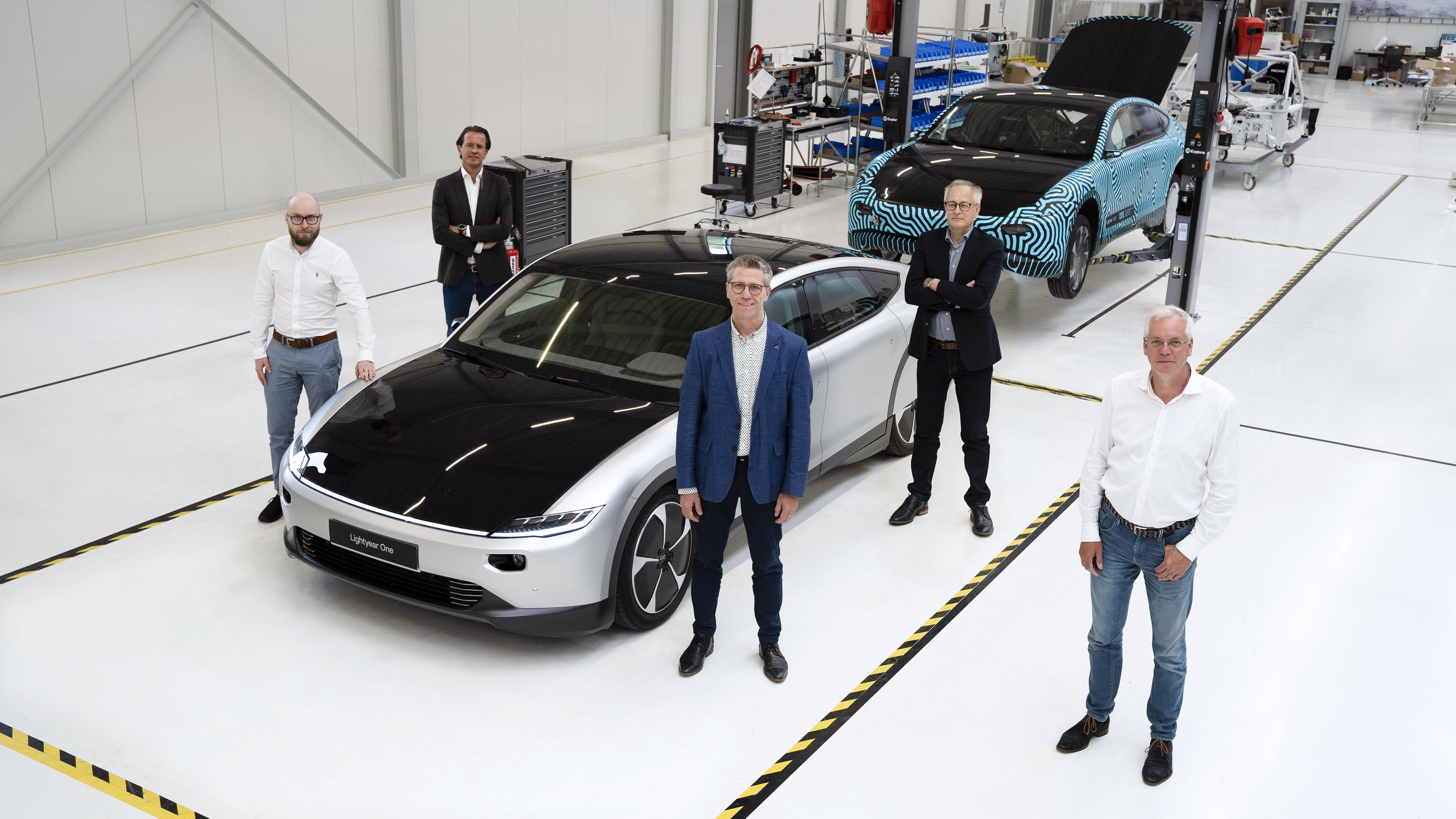This solar-powered EV is finally getting made - but will it be any good?
Solar panels can recover 12 km of range every hour

Lightyear, a young company focused on building electric cars and solar-electric vehicles, recently announced that it had found a production partner for its new solar panel-clad electric car.
The startup is partnering with a Finnish manufacturer called Valmet Automotive to build the Lightyear One EV, the first prototypes of which are scheduled to be built in January 2022.
Despite questions around its claims of impressive range numbers, Lightyear has managed to raise plenty of capital to keep its wheels turning.
- Mercedes EQA review: Merc's affordable EV gets almost everything right
- Volvo XC60 Recharge review: A PHEV great for space, comfort and family
- EV charging connectors: what they are and how they compare
Lightyear first showed off the vehicle in 2019 and outlined several headline-grabbing features:
- Up to 450 miles of range on a single charge
- Solar panels covering five square meters of the roof with the capability to recover up to 12 km of range every hour.
- Four electric motors
- Up to 60kW fast charge
- $135,000 (around £100,000 / AU$180,000) starting price
Prior to signing the letter of intent, Lightyear's search for a partner had been underway for well over a year.
The company said that Valmet is a pioneer in the EV space, with over ten years of experience in the research and production of electrified. Beyond EVs, however, Valmet's fifty-year history includes manufacturing partnerships with Mercedes-Benz, Saab, and Porsche.
But will this solar-powered car be good?
Will the car be any good when it arrives? Details are still quite scarce, but the car looks compelling on paper.
Get daily insight, inspiration and deals in your inbox
Sign up for breaking news, reviews, opinion, top tech deals, and more.
Using solar panels to provide additional power for the car allows Lightyear to reduce the number of battery cells it needs. The system also greatly increases the range of the car.
With a price tag that runs deep into the $100,000 range, however, the Lightyear One will be a big ask for most buyers.

After working in the technology and software industry for several years, Chris began writing as a way to help people outside of that world understand the sometimes very technical work that goes on behind the scenes. With a lifelong love of all things automotive, Chris turned his attention to writing new vehicle reviews, detailing industry trends, and breaking news. Along the way, he earned an MBA with a focus on data analysis that has helped him gain a strong understanding of why the auto industry’s biggest companies make the decisions they do.